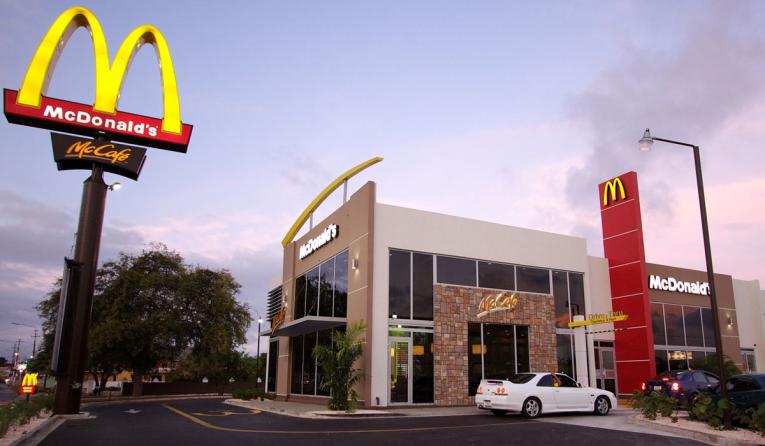Low wages in the fast-food industry have cost us all-new research.
Taxpayers bombard $ 1.2 billion annually to pay McDonald’s employees, an estimate from the National Employment Law Project released Tuesday. The organization used estimates from a study by the University of California-Berkeley and the University of Illinois at Urbana-Champaign on the number of fast-food employees who depend on public aid programs like food brands and Medicaid for their analysis.
Overall, low wages at the top ten fast-food chains cost taxpayers around $ 3.8 billion a year, according to NELP.
With Republicans in Congress struggling to limit spending on claims programs like food stamps, the report offers an often-overlooked solution: Businesses can pay more workers to reduce their dependence on public support.
“A very simple political solution would raise the minimum wage here,” said Sylvia Allegretto, co-chair of the Berkeley Center for Wage and Labor Dynamics and one of the authors of the Berkeley / UI study. The employees who are paid the minimum wages mainly depend on the government subsidiaries.
Will the wages rise?
The National Restaurant Association, a group of companies representing more than 500,000 restaurants, published the reports. He argued that the Berkeley and UI researchers’ decision to consider the tax credit received, a tax exemption for low-income families, as a subsidy “inflated” the study results.

McDonald’s wrote in a statement that the company and its franchisees offer hundreds of thousands of jobs across the country that offer opportunities for advancement.
It is extremely difficult to lead the market in this tough competitive era. For its estimation, NELP used publicly available data on the fast-food industry. How many front-line employees are employed at each restaurant, as well as the University of California-Berkeley / UI study?
The Berkeley / UI study found that 52% of fast-food working-class families, defined as non-managers who work more than 11 hours a week and more than 27 weeks a year, depending on at least one program of government support. The researchers used registration data from government programs such as Medicaid and the Supplemental Nutrition Assistance Program (or food brands), and this information was compared with the demographics of the Bureau of Labor Statistics staff.
One of those workers is Pelham Wiley. About a year ago, he cleaned the bottom of a McDonald’s in Chicago, took out the trash, and changed the grease from the pots. Wiley says her $ 8.25 check-in less than 40 hours a week is not enough to cover her monthly expenses, like rent and transportation, of around $ 600.
Therefore, Wiley uses the Illinois Food Stamp Program to fill in the blanks. It often fails.